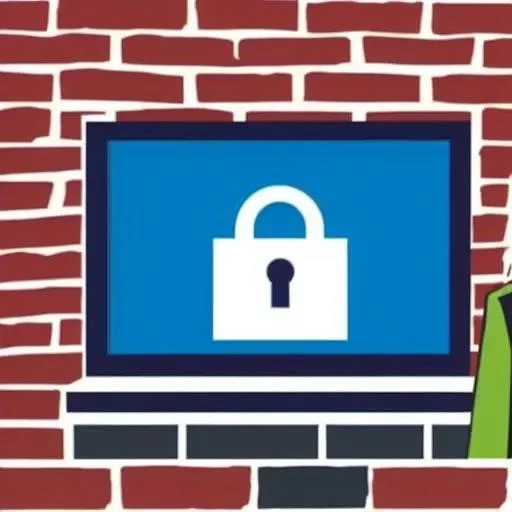
In today’s increasingly interconnected world‚ online security and privacy are paramount. Virtual Private Networks (VPNs) have emerged as powerful tools‚ promising to encrypt your internet traffic and shield your online activities from prying eyes. However‚ a cloud of misconceptions often surrounds VPNs‚ leading users to make potentially risky decisions based on inaccurate information. Debunking these pervasive myths is crucial for understanding the true capabilities and limitations of VPNs‚ allowing you to make informed choices to protect your digital life. Ignoring these facts can expose you to surveillance‚ data breaches‚ and other serious online threats.
The allure of absolute anonymity and unbreakable security is a common thread running through many VPN myths. Some believe that simply activating a VPN makes them invisible online‚ rendering them immune to tracking and surveillance. Others assume that all VPNs offer the same level of protection‚ regardless of provider or underlying technology. These assumptions are not only false but also potentially dangerous‚ leading to a false sense of security and ultimately‚ increased vulnerability. It’s important to realize that while offering substantial protection‚ VPNs are not a silver bullet‚ and their effectiveness hinges on several factors‚ including the VPN provider’s policies‚ the user’s browsing habits‚ and the overall threat landscape. Understanding these nuances is key to using VPNs effectively and responsibly.
Below is a table outlining some common misconceptions about VPNs and the corresponding realities.
| Myth | Reality |
|---|---|
| Myth 1: VPNs make you completely anonymous online. | Reality: VPNs mask your IP address‚ making it harder to track you‚ but they don’t guarantee complete anonymity. Websites can still track you through cookies‚ browser fingerprinting‚ and other techniques. |
| Myth 2: All VPNs are equally secure. | Reality: The security of a VPN depends on its encryption protocols‚ logging policies‚ and the jurisdiction in which it operates. Free or low-cost VPNs may have weak security or even sell your data. |
| Myth 3: VPNs protect you from all online threats. | Reality: VPNs primarily encrypt your internet traffic and protect your IP address. They don’t protect you from malware‚ phishing attacks‚ or other online threats. You still need to practice safe browsing habits and use antivirus software. |
| Myth 4: Using a VPN is illegal. | Reality: Using a VPN is legal in most countries. However‚ some countries restrict or ban VPN usage. It’s your responsibility to understand the laws in your jurisdiction. Using a VPN to commit illegal activities is still illegal‚ regardless of whether you’re using a VPN. |
Myth 1: VPNs Guarantee Total Anonymity. This is perhaps the most pervasive and misleading myth. While VPNs effectively mask your IP address‚ making it significantly harder for websites and trackers to pinpoint your exact location‚ they don’t erase your digital footprint entirely. Sophisticated tracking methods‚ such as browser fingerprinting‚ which analyzes your browser’s configuration to create a unique identifier‚ can still be used to identify you. Furthermore‚ cookies‚ small files stored on your computer by websites‚ can track your browsing activity even when using a VPN. To achieve a higher level of anonymity‚ consider combining a VPN with other privacy-enhancing tools‚ such as Tor or a privacy-focused browser like Brave. Remember‚ a VPN is a powerful tool‚ but it’s not a magic bullet for complete anonymity.
Myth 2: All VPNs Offer the Same Level of Security. This couldn’t be further from the truth. The security landscape of VPN providers is incredibly diverse‚ with varying levels of encryption‚ logging policies‚ and operational transparency. Free VPNs‚ in particular‚ often come with hidden costs‚ such as aggressive advertising‚ data logging‚ or even the injection of malware. Reputable VPN providers utilize strong encryption protocols like AES-256 and have strict no-logs policies‚ meaning they don’t store any information about your online activities. Before choosing a VPN‚ carefully research the provider’s security features‚ read independent reviews‚ and scrutinize their privacy policy. Investing in a premium VPN service from a trusted provider is a worthwhile investment in your online security and privacy.
Myth 3: VPNs Protect You From All Online Threats. While incredibly effective at encrypting your internet traffic and shielding your IP address‚ VPNs are not a panacea for all online security ills. They don’t protect you from malware infections stemming from malicious websites or phishing attacks designed to steal your credentials. If you click on a suspicious link or download a compromised file‚ a VPN won’t magically protect you from the resulting malware. Similarly‚ a VPN won’t prevent you from falling victim to a phishing scam if you carelessly enter your password on a fake website. It’s crucial to maintain a multi-layered approach to online security‚ combining a VPN with robust antivirus software‚ a firewall‚ and‚ most importantly‚ a healthy dose of skepticism when browsing the internet.
Myth 4: Using a VPN is Illegal. This myth stems from a misunderstanding of VPN technology and its legitimate uses. In the vast majority of countries‚ using a VPN is perfectly legal. People use VPNs for a variety of legitimate reasons‚ including protecting their privacy on public Wi-Fi networks‚ accessing geo-restricted content‚ and bypassing censorship in countries with repressive regimes. However‚ using a VPN to engage in illegal activities‚ such as hacking‚ distributing copyrighted material‚ or committing fraud‚ is still illegal‚ regardless of whether you’re using a VPN. The law treats VPN users the same as any other internet user; if you break the law online‚ you’re still accountable for your actions.
Ultimately‚ understanding the realities behind these common VPN myths empowers you to make informed decisions about your online security and privacy. A VPN can be an incredibly valuable tool‚ but it’s essential to use it responsibly and in conjunction with other security measures. By dispelling these myths‚ we can foster a more informed and secure online environment for everyone.
